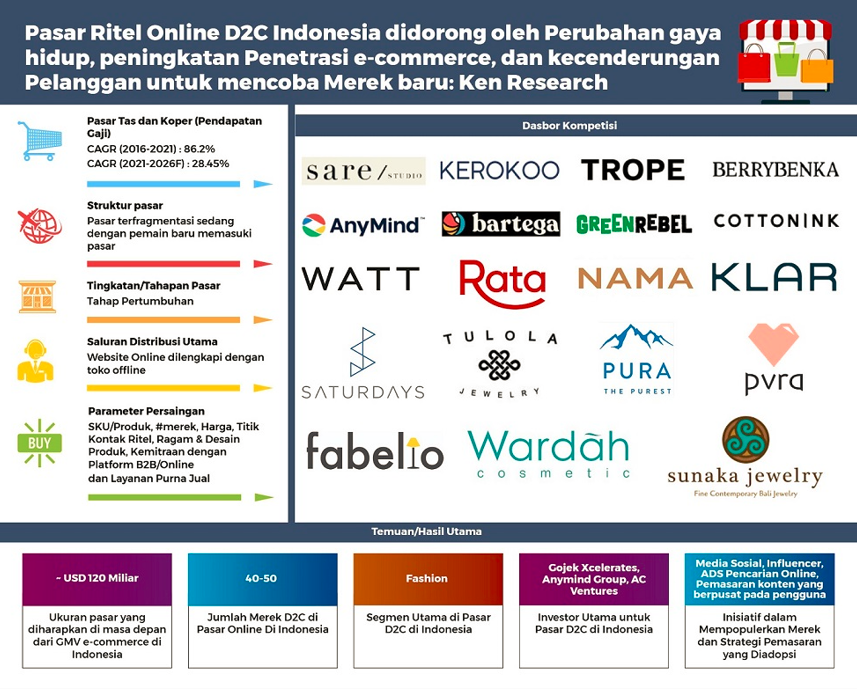BRI Ventures D2C Business Networking through the Kiqani Labs Accelerator Program
Target 15-20 business brands from various segments, such as fashion, beauty products, and F&B
BRI Ventures through its managed fund Sembrani Kiqani, launched Kiqani Labs, an accelerator program focused on capturing D2C businesses (direct to consumers). This program is expected to capture business brands from various segments, such as fashion, beauty products and F&B in Indonesia.
To take part in this program, prospective participants are expected to already have a business that has been validated in the market. In the program which will be held for 2 months, BRI Ventures offers insights more broadly related to this industry, as well as visits to the location of the company's strategic partners, as well as an extensive network and reliable mentors.
He emphasized that BRI Ventures did not promise direct investment, but did not rule out the possibility of future collaboration. Currently, Kiqani Labs is also still opening opportunities for business people who want to register their brands in this accelerator program.
First announced to the public at the end of 2021, Sembrani Kiqani's managed fund does indeed have a focus on consumer brands targeting the sector direct-to-consumer (D2C). At that time, Nicko Widjaja, CEO of BRI Ventures believed that this sector was capable of becoming an industry driver, especially amid the economic recovery from the Covid-19 pandemic.
Previously, BRI Ventures also collaborated with Tokocrypto in running the program Tokocrypto Sembrani Blockchain Accelerator (TSBA). This initiative seeks to provide extensive modules specifically designed to bring blockchain projects and startups to the world stage.
D2C Market in Indonesia
Based on a report issued by Ken Research, Indonesia is projected to experience increased competition in the D2C market in the coming years as a result of the rise of industry 4.0. Growing industrialization in Indonesia is helping to propel the D2C industry to unprecedented levels of development.
The same report states that the current D2C market size in Indonesia is no more than 1% of the total market e-commerce. However, this figure is believed to grow significantly, driven by a large target market, increased online purchases, high per capita income, and venture capital support for D2C startups in the country.

Based on the infographic created by Ken Research above, it can be seen that e-commerce GMV in Indonesia has a market potential of up to USD$120 billion. Fashion and Apparel become the main segment that also contributes the largest revenue to the D2C market in Indonesia.
In terms of competition, this industry is still very fragmented. More and more brands are adopting a distribution strategy omnichannel post-COVID to gain a foothold in the market as customers hesitate to visit offline stores. One of which is hyperfast, who recently presented a survey related to local brand trends in Indonesia.
Many investors have started to look at this market. Several accelerator programs have also been launched to encourage the growth of the D2C market in Indonesia. Apart from Kiqani Labs, there are Gojek Xcelerate came first to capture retail MSMEs. Most recently, there is the D2C accelerator program from Kino Indonesia which has just completed an intensive bootcamp program last March.
Sign up for our
newsletter
